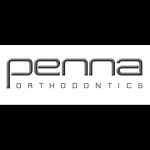How to Keep Your Teeth Healthy During Braces Treatment
As someone who has gone through the journey of braces treatment, I understand how challenging it can be to maintain proper oral hygiene while wearing braces. The brackets, wires, and bands can trap food particles and plaque, leading to potential issues like tooth decay or gum disease if you're not careful. Over time, I’ve learned some effective techniques that not only help maintain healthy teeth but also keep the overall treatment process on track. If you're currently undergoing braces treatment, or if you’re about to start, here are some tips to help you keep your teeth healthy and your smile bright throughout the process.
1. Maintain a Consistent Oral Hygiene Routine
When you have braces, brushing and flossing become even more critical than usual. I found that a consistent oral hygiene routine is essential for preventing plaque buildup around the brackets and wires. In my experience, I recommend the following steps:
1.1 Brush After Every Meal
Brushing after every meal ensures that you remove any food particles that may get stuck in your braces. I’ve made it a habit to always carry a travel toothbrush and toothpaste, which made it easier to keep my teeth clean throughout the day. After meals, I would gently brush my teeth using a soft-bristled toothbrush. Be sure to brush around the brackets and under the wires, as food can easily get trapped there.
1.2 Use an Electric Toothbrush
In my experience, an electric toothbrush makes brushing much more effective, especially when dealing with braces. The gentle vibrations help clean around the brackets and wires more efficiently than a manual toothbrush. Electric toothbrushes often have settings that are specifically designed for braces, which can help prevent gum irritation while ensuring a thorough clean.
1.3 Don't Forget the Brackets and Wires
One of the mistakes I made at first was forgetting to clean around the brackets and wires. Plaque tends to build up around these areas, which can lead to staining and decay. When brushing, it’s important to angle your toothbrush towards the brackets to ensure every surface is cleaned. Gently scrub along the gum line and the brackets themselves to prevent plaque from building up. I also used a special orthodontic toothbrush with shorter bristles that helped me clean the tight spots more effectively.
2. Flossing is Essential
Flossing can be a bit more challenging with braces, but trust me, it’s worth the effort. I used to find it difficult at first, but I soon realized that regular flossing is crucial to keeping my gums healthy and preventing cavities between my teeth. With braces, food and plaque can accumulate between the teeth, and flossing helps remove this buildup.
2.1 Use Special Floss for Braces
There are orthodontic flosses designed specifically for people with braces. These flosses usually have a stiff end, making it easier to thread between the wires and under the brackets. I found that using a floss threader made the process much easier. It allowed me to slide the floss between the wire and my teeth without any hassle. Flossing once a day can help remove plaque and debris, preventing gum disease and cavities.
2.2 Consider Using Interdental Brushes
If regular flossing proves difficult or ineffective in certain spots, interdental brushes are a great alternative. These tiny brushes can fit between the wires and brackets, allowing you to clean areas that regular floss might miss. I personally loved using these, especially for cleaning the spaces between the brackets. Interdental brushes are gentle and effective at removing food and plaque, making them a great addition to your oral care routine.
3. Avoid Certain Foods and Drinks
When you’re wearing braces, some foods and drinks can cause damage to your brackets or make your cleaning routine harder. I quickly learned which foods to avoid in order to protect my braces and maintain my oral health during treatment. Here are some tips based on my experience:
3.1 Stay Away from Sticky and Hard Foods
Sticky foods, like caramel or chewing gum, can get stuck in your braces, making it difficult to clean properly. Hard foods, like nuts or popcorn, can damage or break the brackets. I learned the hard way that biting into tough foods like apples or crusty bread could loosen wires and brackets. To avoid these issues, try cutting hard foods into smaller pieces or simply choose softer options that are easier to manage.
3.2 Limit Sugary and Acidic Drinks
Sugary drinks, such as soda and fruit juices, are a major culprit when it comes to cavities. When you have braces, the sugar in these drinks can stick to the brackets, providing food for the bacteria in your mouth. Over time, this can lead to tooth decay. I found that drinking water was the best choice while wearing braces. If you must drink sugary or acidic beverages, try using a straw to minimize contact with your teeth, and always brush your teeth afterward.
4. Rinse with an Antimicrobial Mouthwash
Rinsing with an antimicrobial mouthwash is a great way to keep your mouth fresh and free of harmful bacteria. I used mouthwash daily to help prevent plaque buildup around my braces. It’s particularly effective at getting into areas that are hard to reach with a toothbrush or floss. I also found that it helped reduce any irritation caused by the braces themselves.
4.1 Look for Mouthwash That is Alcohol-Free
Some mouthwashes contain alcohol, which can dry out your mouth and irritate your gums. I always opted for an alcohol-free mouthwash to keep my mouth moist and my gums healthy. This also ensured that I could rinse without feeling any discomfort or burning sensation.
5. Visit Your Orthodontist Regularly
Regular visits to the orthodontist are crucial during your braces treatment. These appointments allow your orthodontist to monitor your progress, adjust your braces, and address any issues that may arise. I made sure to stick to the recommended schedule for checkups, which was typically every 4 to 6 weeks.
5.1 Address Issues Early
If you notice any discomfort or issues with your braces, such as a loose wire or a bracket that’s causing pain, make sure to inform your orthodontist right away. I once had a wire poke the inside of my cheek, and my orthodontist quickly fixed it during my next visit. The earlier you address these issues, the less likely they are to interfere with your treatment and your oral health.
6. Maintain a Healthy Diet
Maintaining a healthy diet during braces treatment is another important aspect of keeping your teeth and gums healthy. I found that eating a balanced diet full of fruits, vegetables, lean proteins, and whole grains not only helped me stay healthy but also supported my oral health. Foods rich in calcium, like dairy products and leafy greens, help strengthen your teeth, while foods high in vitamin C, like oranges and strawberries, support gum health.
6.1 Stay Hydrated
Drinking plenty of water is essential for overall health, but it’s especially important during braces treatment. Water helps rinse away food particles and bacteria that might get stuck in your braces, reducing the risk of plaque buildup and cavities. I made sure to keep a water bottle with me throughout the day to stay hydrated and keep my mouth fresh.
7. Don’t Forget to Care for Your Gums
During my braces treatment, I learned that taking care of my gums was just as important as caring for my teeth. Braces can sometimes cause irritation or swelling in the gums, but regular brushing, flossing, and the use of an antimicrobial mouthwash can help prevent gingivitis and gum disease.
7.1 Use a Soft Bristle Toothbrush
A soft-bristled toothbrush is gentle on your gums while still being effective at cleaning your teeth. I switched to a softer toothbrush to reduce irritation and keep my gums healthy. It’s important not to be too aggressive while brushing, as this can damage your gums and lead to further complications.
7.2 Massage Your Gums
Gentle gum massage can help increase blood flow to the gums, promoting their health. I used a soft toothbrush to gently massage my gums after brushing, which helped keep them firm and free of irritation. This simple step added an extra layer of care to my routine.
Braces treatment is an exciting step toward achieving a beautiful smile, but it requires extra effort when it comes to maintaining oral health. By following these tips and staying diligent with your oral care routine, you can keep your teeth and gums healthy throughout your braces treatment. Remember, patience and consistency are key—soon enough, you’ll have the smile you’ve always dreamed of!







 Smith Smile Orthodontics4.0 (61 review)
Smith Smile Orthodontics4.0 (61 review) Growing Smiles of Englewood5.0 (213 review)
Growing Smiles of Englewood5.0 (213 review) Penna Orthodontics4.0 (33 review)
Penna Orthodontics4.0 (33 review) Paul Ching DDS, Inc4.0 (23 review)
Paul Ching DDS, Inc4.0 (23 review) Dr. Nick Agpalo, DMD4.0 (11 review)
Dr. Nick Agpalo, DMD4.0 (11 review) Children's Dental FunZone - Pediatric Dentist & Orthodontist - Reseda4.0 (1371 review)
Children's Dental FunZone - Pediatric Dentist & Orthodontist - Reseda4.0 (1371 review) The Importance of Oral Health Education During Pregnancy for a Healthy Pregnancy
The Importance of Oral Health Education During Pregnancy for a Healthy Pregnancy Best Tips for Brushing Your Teeth Properly for Healthy Gums: Essential Techniques for Oral Health
Best Tips for Brushing Your Teeth Properly for Healthy Gums: Essential Techniques for Oral Health Why Skipping Dental Checkups Can Lead to Bigger Oral Health Problems
Why Skipping Dental Checkups Can Lead to Bigger Oral Health Problems Advantages of Porcelain Dental Restorations
Advantages of Porcelain Dental Restorations How Can Diabetes Cause Tooth and Gum Problems? Preventing and Managing Oral Health Issues
How Can Diabetes Cause Tooth and Gum Problems? Preventing and Managing Oral Health Issues Healthy Habits for Promoting Good Oral Health and Hygiene: Tips for a Healthy Smile
Healthy Habits for Promoting Good Oral Health and Hygiene: Tips for a Healthy Smile